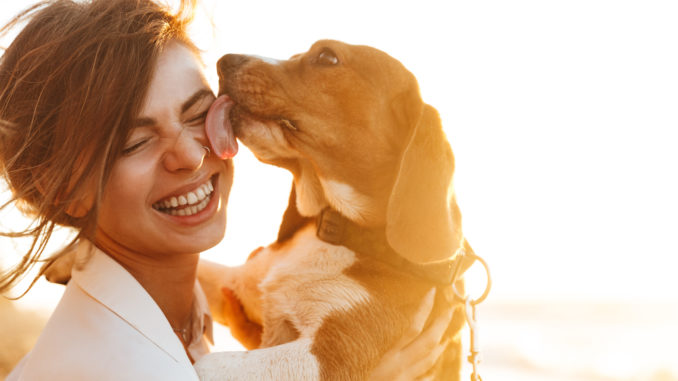
Your pet experiences anxiety and stress as much as human beings do. They can show their distress by exhibiting altered behavior, such as trembling, intensified barking, excessive drooling and licking, heavy breathing, hiding, and escaping. Unlike human beings, they can’t express their anxiety verbally.
Dog anxiety has common causes, like fear-related stress because of loud noises, a new environment, and strange animals or people. Another reason is separation anxiety, where they can’t find comfort when they are alone or separated. And lastly, senior dogs with cognitive dysfunction syndrome tend to decline memory, which is similar to the early stage of Alzheimer’s disease in human beings. It causes them to be more confused and stressed.
You want to help your pet’s stress alleviate, thus it is up to you to pay attention to your pet and react accordingly. Here are ways to give comfort to your anxious pets.
Give Them Anti-Anxiety Medications
Giving anti-anxiety medicines, or psychotropic drugs would be helpful for your pet struggling with anxiety. When they are treated with medication, your pet should be happy and manifest less anxiety, and at the same time, they will still have the same personality. Make sure to use natural drugs rather than sedatives because using it may lead to health problems, possible injuries, or it can make your pet more stressed, and in worst cases, result in sudden death.
Dogs with anxiety are usually prescribed with antidepressants and SSRIs, just like fluoxetine and clomipramine. For fear-related stress, a benzodiazepine with an antidepressant can help your dog. Additionally, selegiline is used to reduce the symptoms of cognitive dysfunction syndrome.
Some dog owners also use CBD oil to treat their dogs’ anxiety because it can handle different health problems of humans and animals. You can check out effective CBD products for your pets on websites like Innovetpet.com.
Play Some Mellow Music
Not just you, but as well as your canine or feline friend benefits from music therapy. It relaxes and soothes them when they are alone, and blocks scary noises, reducing noise sensitivity. Studies show that pets prefer classical pieces of music, like Beethoven and Mozart’s composition. You can also try “Through a Dog’s Ear” by psychoacoustics researcher Joshua Leeds and pianist Liza Spector, and “Noah’s Harp: Surrender” composed by Susan Raimond.
These relaxing tones can give them comfort instead of hearing loud noises, which causes anxiety. You can leave the television and play this music while you are away from home, busy in school or work, or if you’re doing errands. This calming noise can be their companion who can make them happy.
Create a Sanctuary Area
Isolating your pet in a quiet place can help if there are situations that no extent of praising, rewarding, or calming can alleviate their stress. However, don’t let them feel that it is their punishment. Provide a secure place but never shut them in a room. They need a space with no stimulation where they can unwind. You can give them their bed for them to rest. Maybe a good rest can help your pets if they have physical pain. When there are loud noises, such as thunderstorms or fireworks, you can turn on soft music to help them rest.
Exercise With Your Pet
The easiest way to calm their mind is never to leave them alone, especially if your dog has separation anxiety. According to studies, a significant level of exercise with your dogs correlates with their low level of fear, anxiety, and aggression. Taking your dog out for a walk, running, or playing a ball in the park can relieve stress. Giving them a lot of physical contact, and having the time to talk to them is also beneficial.
Aside from that, they will be tired enough to calm them when he comes back inside the house. And lastly, your pet can have time to bond with you, and you also benefit by producing endorphins, which can also reduce your stress. However, doing an exercise is impossible if your pet has an injury or illness, but you can also spend time with them by playing indoors. 
Provide Your Pet a Massage Therapy
Physical contact and touch are beneficial for both humans and pets to alleviate their stress. When dogs feel they are being cut off from their friends and are hurting physically, they get anxious. But a gentle patting session or cuddling with them makes them calmer during stressful situations.
You can also massage them since stress causes firming of the muscles; massage therapy can relieve the tension. Start by massaging the neck, and move with long strokes downwards. In that way, you can know where your pet holds the stress and work in that area.
Buy Them Calming Coats
Although your pet might look funny wearing a compression wrap, it can make a big difference. Wrapping a calming coat or shirt gives your dog a gentle, constant pressure in their torso, which reduces fear. This technique makes them feel you are with them; thus, this is the best for dogs with separation and fear-related anxiety.
You can also give them a blanket or towel that already has your scent, which can make them feel they are more protected.
Give Them Toys
Stressed dogs don’t know how to convey their energy. They can’t show you that there’s something wrong or are in pain, so they tend to become destructive. But with a good chew toy, they will focus on that, and they won’t destroy your personal belongings or household items. They can relieve their stress by a chew toy.
Also, if your dog keeps on growling with another dog while both of you are outdoors, you can divert attention. You can soothe an emotionally charged moment with a toy that can entice them to stop.
Consider Seeking Professional Help
If your pet seems extraordinarily anxious and you are already struggling to calm them, it’s the time to seek professional advice. Note the situation of your pet and describe the signs to a board-certified veterinary behaviorist to give your pet the right treatment type. Even if your furry friend has no illness or injury, there may be something the vet can detect.
Takeaways
Just like humans, your pet experiences anxiety that alters how they act or behave. And as an owner, you’re the only one who can help your pet. Understanding this information can help you know how to help them. But keep in mind that stress isn’t always bad. Fear or anxiety warn you to prevent potentially dangerous situations.

Leave a Reply